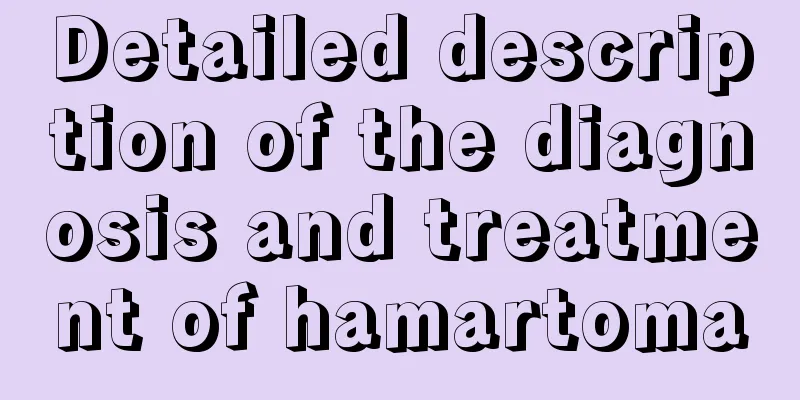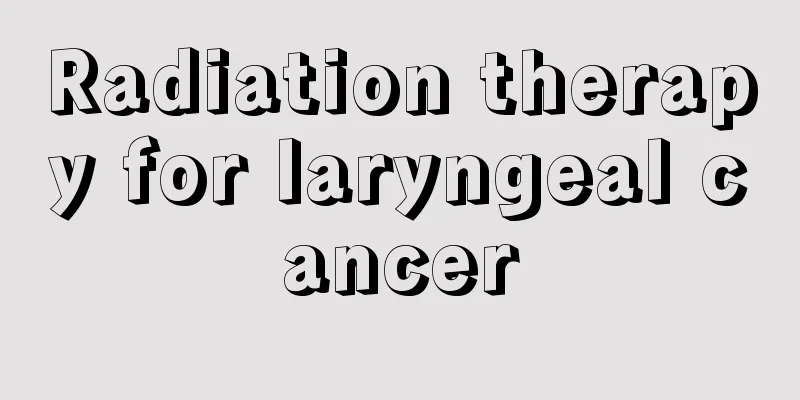Detailed description of the diagnosis and treatment of hamartoma

|
Nowadays, there are still many people who basically do not have physical examinations due to their conditions. They do not know when hamartoma appears, and only realize the danger when it becomes serious, so they are very anxious. However, how to diagnose and treat hamartoma? Let us learn about the overview of hamartoma diagnosis and treatment. Diagnosis of renal hamartoma: The diagnosis of renal hamartoma is generally not difficult and can be confirmed by B-ultrasound, CT or MRI. Differential diagnosis of hamartoma: Malignant renal tumor: Renal hamartoma contains a large amount of adipose tissue. The difference in acoustic impedance between fat and surrounding tissue is very large, so it appears as a strong echo on B-ultrasound examination. However, renal cancer does not contain adipose tissue, so it appears as a low echo on B-ultrasound examination. However, sometimes we encounter atypical renal hamartoma with very little fat component, which makes it difficult to distinguish it from renal cancer. In the same principle, fat tissue shows low density on CT, and a negative CT value can be diagnosed as a hamartoma. However, hamartomas with little fat content are also difficult to distinguish from renal cancer under CT. In addition, MRI scanning is also a good method for diagnosing hamartomas. However, in clinical practice, for hamartomas with little fat content, it is often necessary to combine B-ultrasound, CT and MRI scanning to make a clear diagnosis. Principles of treatment of hamartoma: The treatment of renal hamartoma is mainly based on symptoms, tumor size, etc. 1. For asymptomatic tumors with a diameter of less than 4 cm, since the risk of spontaneous rupture is low, close observation and active monitoring of tumor size progression can be performed; 2. For hamartomas with a diameter of more than 4 cm, if the tumor is progressively enlarged or if the tumor is suspected to have a malignant tendency, surgical resection is recommended; 3. If the tumor is large and ruptures and bleeds, interventional embolization should be considered first, and then re-evaluated after the condition stabilizes, and a decision on surgical treatment should be made based on the situation. |
<<: A detailed review of the diagnosis and treatment of hamartoma
>>: The harm caused by glioma to the human body
Recommend
Nursing treatment of malignant liver cancer What are the treatment methods? Introduction to nursing methods for patients after liver cancer surgery
What are the treatment methods for malignant live...
There is a white patch of skin on my face, what's going on?
It would be very ugly if the skin turned pale in ...
Can I worship Buddha and burn incense while pregnant?
Many people believe in the superstition that ther...
What is the difference between gastric adenocarcinoma and gastric cancer?
What is the Difference Between Gastric Adenocarci...
How long can a person with brainstem glioma usually live?
The main means of treating tumors are surgical re...
Can walnuts reduce the risk of breast cancer? How to eat walnuts healthily?
Walnuts are a nut that is rich in nutrients. Wome...
Causes of bone metastasis of lung cancer
Lung cancer care is also very important for patie...
Adherence to postoperative adjuvant chemotherapy effectively prevents recurrence of colorectal cancer
As a common cancer, colorectal cancer can be temp...
What kind of facial mask is suitable for acne-prone skin
There are many types of facial masks, and now fac...
The difference between fumigation and sweat steaming
I believe that we often hear about sauna, sweat s...
How many minutes should I take the temperature under my armpit?
When a person catches a cold or is infected by a ...
Is bitter melon sweet when it is ripe?
As the name suggests, bitter melon is a bitter me...
How to extract plant essence
The so-called plant essence refers to the substan...
How to perform cervical cancer surgery
Cervical cancer is a very common malignant tumor ...
What are the causes of cervical cancer? Common prevention methods for cervical cancer
Causes of cervical cancer What causes cervical ca...









